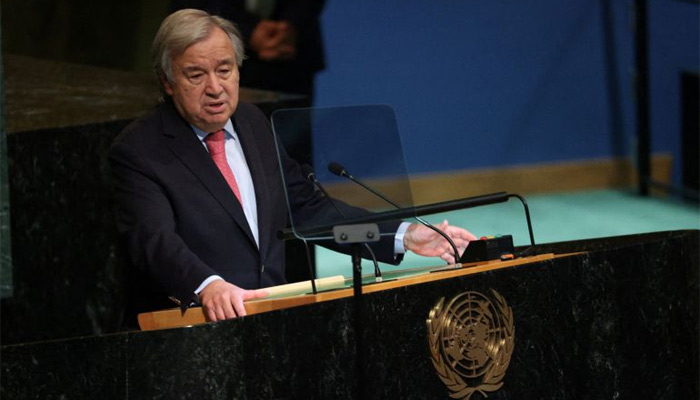The UN General Assembly will seek the opinion of the International Court of Justice (ICJ) on countries’ obligations to address climate change, following the adoption by consensus of a resolution on Wednesday.
The resolution was put forward by the cyclone-battered Pacific Island nation of Vanuatu, supported by a “core group” of 17 countries from various regions, and is focused on the adverse impacts of climate change on small island developing States as well as climate justice.
The ICJ, also known as the World Court, is the UN’s principal judicial organ. Although its advisory opinions are not legally binding, they carry legal authority and moral weight.
Taking bolder action
Speaking ahead of the vote, UN Secretary-General António Guterres noted that the Court’s advisory opinions have tremendous importance.
“If and when given, such an opinion would assist the General Assembly, the UN and Member States, to take the bolder and stronger climate action that our world so desperately needs,” he said.
A ‘critical decade’
Mr. Guterres pointed to the latest climate science, unveiled this month, which confirmed that humans are responsible for virtually all global heating over the past 200 years.
The report by the Intergovernmental Panel on Climate Change (IPCC) further showed that limiting global temperature rise to 1.5 degrees Celsius above pre-industrial levels, is achievable – but time is running out.
Climate justice and cooperation
The UN chief stressed that now is the time for climate action and climate justice.
“The climate crisis can only be overcome through cooperation – between peoples, cultures, nations, generations. But festering climate injustice feeds divisions and threatens to paralyze global climate action,” he warned.
The Prime Minister of Vanuatu, Alatoi Ishmael Kalsakau, said ambition towards achieving the 1.5-degree target “is still far from what is needed”, and an ICJ advisory opinion could provide clarity that would benefit global efforts to address the climate crisis and further boost cooperation.
He said the final text of the resolution was the result of lengthy consultations and deliberations, and he also highlighted the important role played by young law students in the Pacific who inspired the initiative.
No ‘silver bullet’
“The intense and engaged negotiations with the core group as well as with a broader UN membership, were an indication of the importance of this initiative, but also of the collective desire to work towards addressing the climate crisis,” he said.
“This is not a silver bullet, but it can make an important contribution to climate change, climate action, including by catalyzing much higher ambition under the Paris Agreement,” he added, referring to the 2015 global treaty on climate change.
A ‘landmark resolution’
UN High Commissioner for Human Rights, Volker Türk, issued a statement warmly welcoming the “landmark resolution”.
An ICJ advisory opinion “could be an important catalyst for the urgent, ambitious, and equitable climate action that is needed to stop global heating and to limit and remediate climate-induced human rights harms,” he said.
He also welcomed the resolution’s “clear recognition of the relevance of action today for the generations to come”.
The UN rights chief said his Office, OHCHR, has extensively documented the human rights impacts of climate change and set out the human rights obligations of States and other actors.
“States have obligations to mitigate and adapt to – and address loss and damage resulting from – climate change,” said Mr. Türk. “We look forward to sharing this expertise in this highly significant process before the International Court of Justice.”

